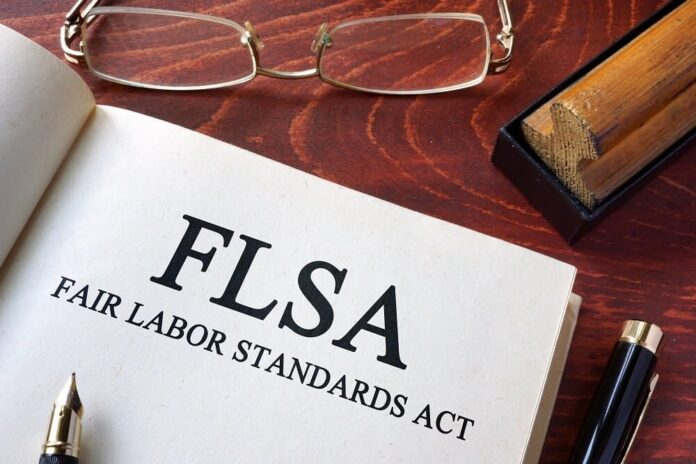In recent years, the corporate environment has drastically transformed, ushering in a myriad of challenges. Among these, job dismissals stand out as an increasingly contentious issue. Not only are they fraught with emotional tension, resonating deeply with both employers and employees, but they are also enmeshed in an intricate web of legal intricacies.
Deciphering these subtleties is not just an academic exercise; it’s vital for practical reasons. Recognizing when to enlist the expertise of legal counsel is equally paramount. This comprehensive guide offers a deep dive into the multifaceted realm of job dismissals, demystifying the legal intricacies and spotlighting scenarios where expert advice is indispensable.
Understanding Job Dismissals
Across the globe, businesses often face the need to make tough decisions. Job dismissals, which can manifest in various guises, such as terminations, layoffs, or even redundancies, invariably signal the cessation of a working relationship. Delving deeper, the principle of at-will employment emerges as a predominant doctrine, particularly in the U.S.
This concept essentially states that either the employer or employee can decide to terminate the employment contract without a specified rationale, barring any legal impediments. While this affords both parties a certain latitude, it simultaneously births intricate challenges. Dismissals, if perceived as unjust or discriminatory, can trigger a slew of issues.
Legal Framework for Job Dismissals

Employment, at its core, is governed by an elaborate framework of laws and stipulations. In countries like the U.S., seminal legislations like the Fair Labor Standards Act (FLSA) and the Civil Rights Act delineate fundamental guidelines. These laws aren’t just bureaucratic red tape; they shape the very fabric of employment relations. For any employer, ignorance isn’t bliss. Being oblivious to or flouting these directives doesn’t merely tarnish their corporate image; it exposes them to significant legal ramifications and financial liabilities.
Scenarios Requiring Legal Counsel
The terrain of job dismissals isn’t always transparent. Many a time, employers grapple with the quandary of whether to rope in legal counsel. However, there are undeniable circumstances where this becomes imperative.
Situations like wrongful termination assertions, claims of prejudicial treatment, or instances of retaliation necessitate a keen legal acumen and help of redundancy lawyers. Erring on the side of caution is wisdom in these contexts; it’s always more prudent to engage seasoned legal minds than to court the specter of litigation.
Benefits of Early Legal Involvement
Ancient wisdom posits that “prevention is superior to cure.” This axiom holds immense weight in the realm of job dismissals. The proactive involvement of legal professionals can preempt many complications down the line.
These experts bring a lot to the table. They don’t just decode jargon; they assist employers in meticulously vetting employment contracts to guarantee transparency and fairness. Furthermore, they impart invaluable insights on best practices and protocols, ensuring the employer’s journey remains within legal boundaries.
Preparing for Dismissals

The act of dismissing an employee isn’t something executed on a whim. A precursor to such a significant decision involves diligent groundwork. Employers need to meticulously document relevant data, which accentuates the rationale behind the dismissal.
Fostering open lines of communication is paramount; directly confronting potential disagreements can curtail their growth. This preparatory phase, if conducted assiduously, can be a bulwark against legal entanglements.
Navigating Emotional Challenges
The human dimension of job dismissals often remains in the background, yet its impact is undeniably profound. For employees, such a moment feels like an abrupt, destabilizing upheaval. Simultaneously, for employers, making the decision becomes a daunting task, especially knowing it directly affects an individual’s livelihood.
Beyond the black and white of laws, legal experts play a pivotal role. They don’t merely provide statutory guidance but introduce a balanced structure and objectivity, smoothing the waters for smoother interactions. Their seasoned perspective can be an emotional anchor, ensuring decisions remain judicious and not solely based on fleeting emotions.
Legal Procedures During Dismissals
At a cursory glance, job dismissals might seem straightforward, but they are, in reality, interwoven with meticulous legal formalities. From the crucial step of abiding by the designated notice periods to designing fair and balanced severance packages, and even the subtle art of managing constructive exit interviews, the process is labyrinthine. Each segment of the dismissal process has its inherent legal nuances, demands, and potential pitfalls. Even a seemingly minor oversight can cast a long shadow, placing employers in the crosshairs of potential legal consequences.
Mitigating Legal Risks

The trajectory of job dismissals, from initiation to conclusion, is riddled with potential legal pitfalls. However, with foresight and a well-charted strategy, many of these hazards can be sidestepped. Central to a successful strategy is the unwavering commitment to treat every employee with uniformity, ensuring no biases mar the process.
The act of documenting every single interaction, discussion, and decision emerges as paramount. Every pivotal decision, especially those under potential scrutiny, must be rooted in transparent reasoning, fortified by the pillars of established legal standards and a genuine commitment to fairness.
Employee’s Rights and Remedies
When an individual’s employment is terminated, it’s essential to remember that this act doesn’t diminish their inherent rights. These rights, recognized by legal frameworks, remain inviolable. Any deviation or infringement can set off a cascade of legal consequences. Should employees find themselves at the receiving end of unjustified or illegal dismissals, the law provides avenues for redressal.
They can seek remedies, which might encompass monetary compensation or even a potential reinstatement, depending on the circumstances. Grasping these rights and the channels available for redress is imperative for both the departing employees and the employers making the decision.
Role of Mediation and Negotiation
While the cold, formal environment of a courtroom is one avenue for resolving dismissal-related disputes, it’s by no means the only one. Mediation and negotiation stand out as viable, often preferable, alternatives.
These methods create a collaborative space, enabling both parties to voice concerns and work towards a mutual agreement, eschewing the animosity of extended legal battles. Leveraging the expertise of seasoned legal professionals during these dialogues ensures that the discussions remain productive, focused, and geared towards outcomes beneficial for all involved parties.

Conclusion
The intricate choreography of job dismissals requires finesse, empathy, and legal acumen. With the complex interplay between human sentiments and legal doctrines, both employers and employees need to be well-versed in the governing framework.
As illustrated, the implications of dismissals are profound. However, equipped with knowledge, foresight, and where necessary, expert guidance, these challenges can be deftly managed.








